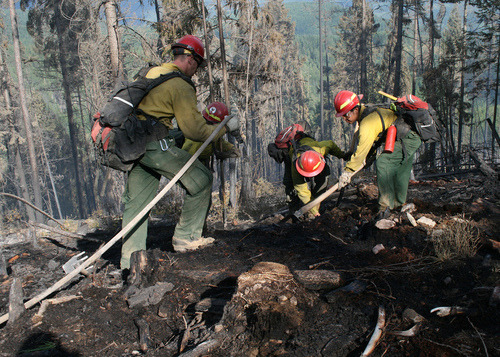The Wenatchee World reported Monday that the Stemilt Loop fire was 70 percent contained and state parks lifted campfire bans west of the Cascade crest. These are both hopeful signs for this year’s fire season but, as warm temperatures combined with dry forecasts continue and firefighters continue to fight the blaze outside of Leavenworth, Washington is not yet out of the woods – or smoke – just yet.
Wildfires don’t just threaten homes, they also cause lost timber value and lost water storage capacity as well as damage to local tourism.
Fire prevention starts with responsible forest management from local, state, and federal agencies working in partnership with communities near at-risk forests. Three Washington Wildlife and Recreation Program grants in the budget passed earlier this summer will help communities mitigate those risks while creating family-wage jobs. The Coalition is proud to promote the WWRP grants. Once these grants are awarded, state and local agencies are empowered to pursue their conservation needs.
Here’s what was funded this year:
Oak Creek Forest Restoration – With WWRP funding, the Department of Fish and Wildlife will promote forest health and reduce the catastrophic risk of wildfires through thinning and other processes.
Methow Forest Restoration Project Phase I – This project will create jobs to carry out key restorations in the Methow Wildlife Area to prevent catastrophic forest fires and improve forest viability, allowing managers to readily sustain quality habitat, and recreational opportunities.
Washougal Oaks Natural Area – With funding from this grant, the restoration of an imperiled oak ecosystem will continue while also protecting a fish-bearing stream inside a steep forested ravine that runs through the heart of the site.
While responsible forest management can help prevent catastrophic fires, much of the burden still lies with forest users.
According to the Washington Department of Natural Resources, 85 percent of wildfires that occur in Washington’s forests are human caused, about 52 percent are determined to have been negligently or intentionally started.
Before you go camping this summer, become aware of burn bans in your area and do not leave campfires or barbecues unattended.
Photo from USDA.

